Managing a workforce today comes with plenty of unique challenges. Many companies struggle with low employee engagement rates, with a 2024 Gallup survey finding that only 30% of US and 23% of global workers were engaged.
This is a huge problem for companies, and workforce engagement management is a critical strategic approach for boosting staff members’ level of involvement in their jobs, and, in turn, employee performance and retention.
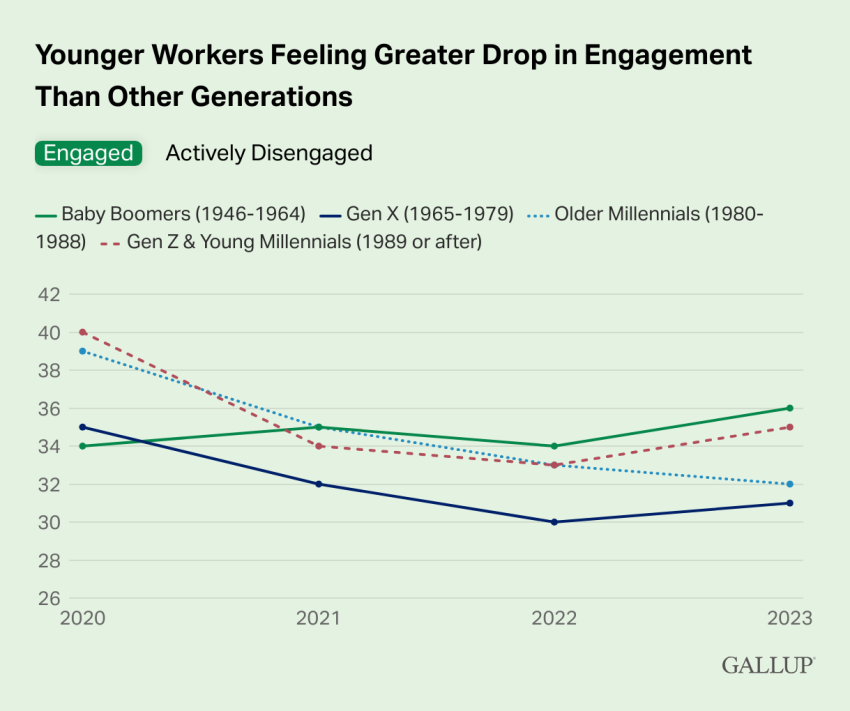
Call centers and contact centers often struggle with agents’ engagement, especially if they don’t feel adequately supported, aren’t properly recognized, or aren’t given the right tools and training.
Workforce engagement management can help businesses and call centers tackle these issues directly, boosting agent morale and engagement for improved results.
What Is Workforce Engagement Management?
Workforce engagement management is a strategic approach to supervising the people on your customer service team. It typically seeks to optimize overall agent performance and improve employee engagement.
Happy and engaged agents deliver better customer service, which can result in higher customer satisfaction and increased loyalty. You can attract top talent and retain it for longer periods, which is always good for your bottom line.

WEM vs WFO vs WFM
There are three terms associated with workforce management that we want to clearly define.
WEM: Workforce engagement management is a holistic approach to improving agents’ experiences and increasing their level of job involvement.
WFO: Workforce optimization is a core component of WEM, with a narrower focus on strategic changes that can improve employee performance metrics using tactics like training, access to new resources, and added incentives. The goal is often to increase productivity and optimize your existing resources to prioritize effectiveness and profitability.
WFM: Finally, we’ve got workforce management. It typically refers to the way employers strategically allocate resources, manage attendance and scheduling, and comply with evolving employment laws and regulations.
Workforce optimization and workforce management significantly overlap with workforce engagement management. Many WEM initiatives incorporate WFO tactics and make use of WFM practices to ensure ongoing compliance with workplace laws.
Benefits of WEM for Businesses
Workforce engagement management offers multiple benefits to businesses and call centers that utilize it. Let’s look at some of the results you can get when leveraging WEM for your contact center, all by increasing agent happiness and engagement.
1. Valuable employee insights
A key component of WEM initiatives is examining essential data to learn about employee experience. WEM programs can identify areas for potential improvement based on agent feedback, manager reports, and employee performance data.
For example, anonymous employee surveys may flag that employees feel overworked and not supported by managers or that they lack the training or resources needed to do their jobs well.
When agents share common obstacles or challenges, you have the opportunity to make improvements that impact their day-to-day experiences and their performance.
2. Reduced agent turnover
An improved agent experience is directly tied to better employee retention, which should be a key goal of all contact centers. Happy workers stay on the job longer.
The average cost of replacing an individual employee can be as high as 200% of their annual salary, which can add up significantly over time.

By decreasing voluntary employee attrition, you benefit in the following ways:
- Reduce time and costs associated with recruiting, hiring, and onboarding new team members.
- Dramatically lower the costs of training new employees.
- Attract top-performing talent and retain it for longer periods, which can improve call center productivity and performance.
3. Improved efficiency
WEM tools often streamline workflows and optimize scheduling, maximizing agent productivity.
Automation can help team members by taking repetitive tasks off their plates, allowing them to focus more where their attention is needed most — on resolving more complex customer needs through dedicated consumer support efforts.
4. Increased customer satisfaction
Happy and engaged agents are more motivated to provide excellent service. Fully supported staff members, who may have the tools and software needed to facilitate a unified customer experience, enthusiastically exceed customer expectations. This directly translates to improved customer satisfaction and retention, which means more profit.
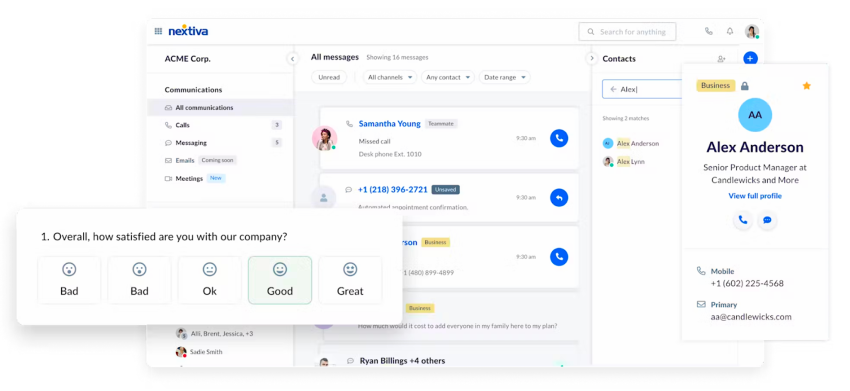
5. Enhanced brand reputation
Creating better and more positive customer experiences will directly impact your brand reputation. You’ll be able to foster customer loyalty and a stronger brand image, both of which can increase customer retention and make it easier to acquire new customers.
Best Practices for Implementing WEM
When you’re implementing workforce engagement management, several best practices can significantly improve your results.
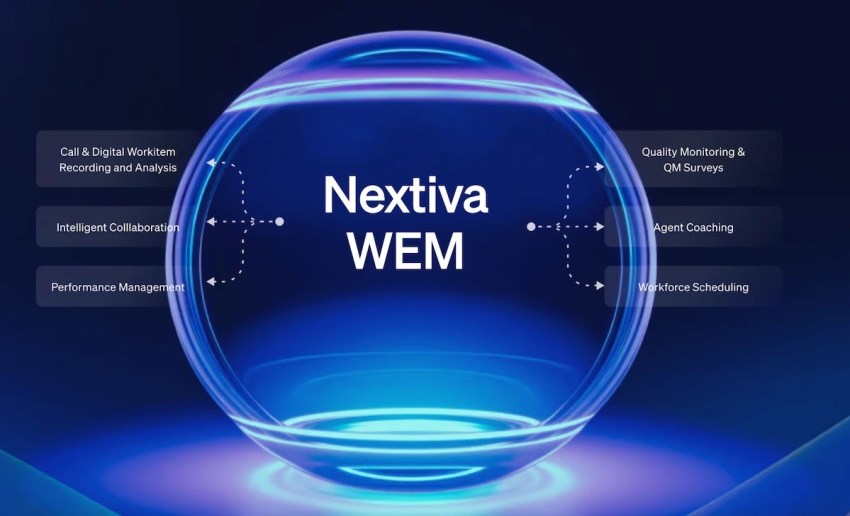
Focus on employee experience
Here are several steps you can take to create a positive work environment that prioritizes your employees’ well-being and growth:
- Offer remote work or flexible scheduling options when possible.
- Provide clear, direct instructions without micromanaging.
- Support employees with the training, tools, and resources they need to succeed.
- Manage employee conflicts effectively to promote a positive workspace.
- Maintain zero-tolerance policies for any behaviors that could contribute to a toxic work environment.
- Offer praise in public and feedback in private.
Invest in the right tools
Workplace engagement management software can help your leaders with scheduling, coaching, performance management, and quality monitoring.

It’s important to find a solution that aligns with your business needs. For example, Nextiva offers workplace engagement management software for contact centers. It has the following features:
- Empowerment solutions to motivate your team.
- A single dashboard for exceptional ease of use.
- AI-driven productivity tools.
- Virtual agents and rich automation.
- Thorough integration options.
Where does your CX strategy stand with AI?
Take the AI Maturity assessment to get personalized recommendations on how to enhance your CX.
Set clear goals & KPIs
When assessing your current workplace and agent engagement, you need to know what you’re measuring.
Establish clear, measurable objectives for agent performance and engagement. Select key performance indicators (KPIs) for each objective you want to meet, and set timely goals for each metric. Track them in dedicated dashboards that help you make sense of the data and act on it accordingly.
Provide ongoing feedback & coaching
The best customer service agents want to grow in their careers. You can help them improve their skills and address development needs by providing kind but clear feedback, support, and coaching.
Proactive coaching and manager engagement can give employees more opportunities to excel in their workspace and improve their performance. Professional development opportunities are directly linked to long-term employee retention.

“As we look ahead into the next century, leaders will be those who empower others.”
Bill Gates
Recognize & reward achievements
Employees who feel undervalued are extraordinarily likely to seek new opportunities, so making an effort to recognize and reward their hard work can go a long way. Here are some examples of recognition for both individual and team contributions:
- Public shout-outs in company communication platforms, team meetings, or newsletters.
- Private acknowledgments of a job well done.
- Employee recognition programs.
- Bonuses, gift cards, or other incentives to reward achievements.
- Celebrations of birthdays, company milestones, or professional accomplishments.
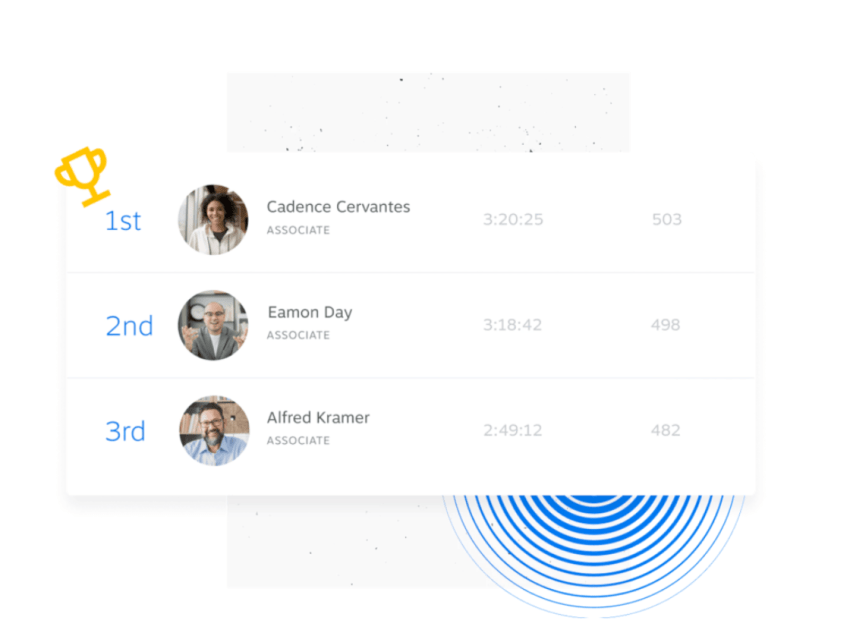
Facilitate open communication
You can create a culture of open communication where employees feel comfortable when receiving and sharing feedback.
Some of your best ideas may come from your team members, and they may spot opportunities for improving the employee experience that may have otherwise gone unnoticed.
You can facilitate open communication by doing the following:
- Encouraging agents to spontaneously share ideas, concerns, and feedback.
- Asking if anyone has suggestions during team meetings.
- Providing opportunities for agents to share feedback anonymously.
How Contact Center Tools Can Help Manage Your WEM Approach
Contact center tools with dedicated WEM solutions can help you assess agent engagement, streamline call recording, facilitate coaching, and more.
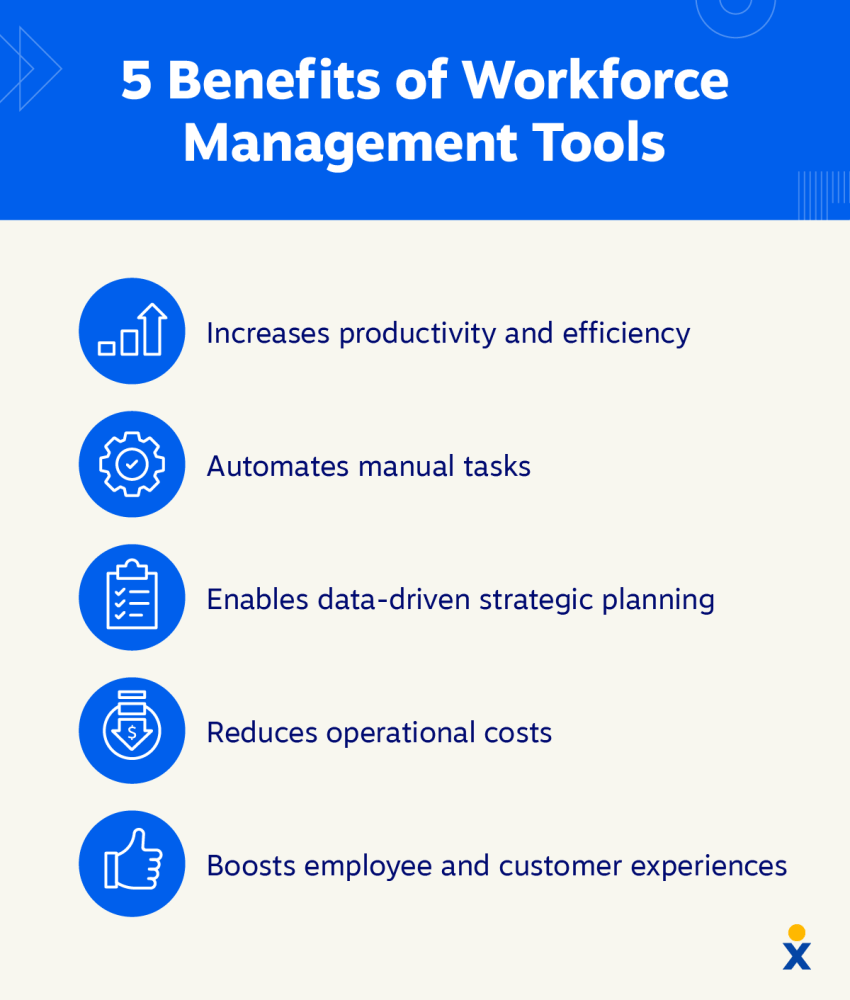
WFM modules
Contact center tools like Nextiva may offer workforce management modules. They have extensive functionality and help contact centers better manage key organizational needs, such as optimized staffing and workforce scheduling solutions.
These modules enable you to simultaneously automate scheduling, forecast potential workforce needs, and adhere to employment laws. You can ensure that staffing levels are optimal and agent skills match anticipated customer needs while accounting for seasonal fluctuations or peak call times.
You’ll also have the right number of agents — and the right combination of agents with distinct skills and experience — to reduce employee stress and call center burnout while simultaneously improving service quality.
Related: Nextiva Workforce Scheduling: Where Automation Meets Optimization
Quality management tools
Quality management tools can facilitate not only call recording but also evaluation and coaching that stem from the call recording analysis.
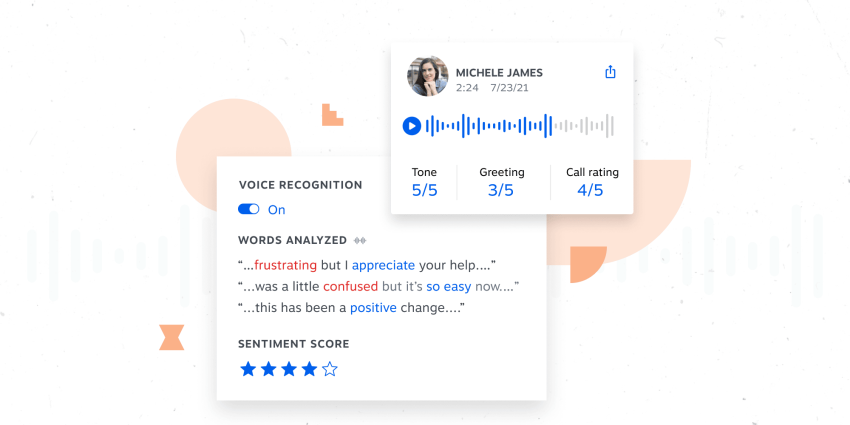
Call recordings can be leveraged for quality assurance. You can use them to create transcripts, review trends in sentiment analysis, and look for recurring keywords or phrases.
Agents can review real interactions with their managers and receive targeted feedback and coaching for their team and individual performances.
Performance management features
As you track KPIs in dedicated dashboards, you can identify potential opportunities for improvement. You can set goals for individual agent and team performance that prioritize customer engagement metrics and support agents with training and resources to help them meet those goals.
AI-powered WEM solutions can enhance agent training, leading to improved performance for both individual employees and the entire team.

Employee engagement features
Features like gamification, recognition programs, and self-service scheduling enable you to boost team morale, give agents convenient options for scheduling or time-off requests, and recognize their hard work.
Real-time data & analytics
WEM-focused contact center solutions can provide invaluable insights into agent performance, individual customer interactions, and overall contact center effectiveness. You can use this data to make more informed decisions about WEM strategies and see the results of your efforts through clear reporting.
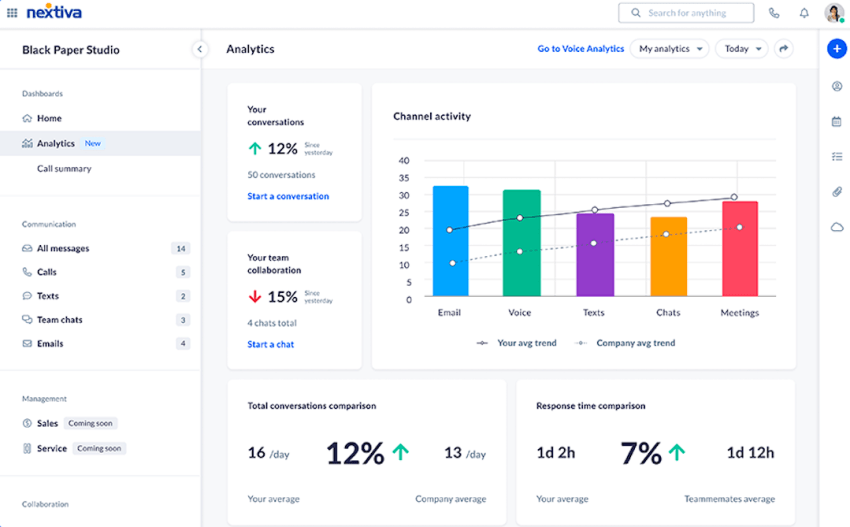
Evaluating contact centers? Get the buyer’s guide.
This guide reveals the five pillars of a modern platform, key questions to ask, and red flags to avoid.
Scaling Your Workforce Is Easier With Nextiva
If better customer experiences are your ultimate goal and you aren’t sure where to start, you may want to consider WEM. It can help you improve scheduling, better acknowledge employees, and identify career advancement opportunities through coaching and mentoring.
Contact centers can employ WEM strategies and solutions to gain clear insights into what’s working and where there may be room for improvement.
Nextiva’s workforce engagement management solution was designed specifically for contact centers. Our software comes with customizable dashboards, AI-powered productivity tools, and real-time reporting for team and agent performance.
Our software can help you implement workforce optimization to improve the agent experience and, as a result, the customer experience.

“We really needed a business phone system that could grow rapidly with us and provide the data that we needed to make sure phone calls were going out and being received well. Nextiva really handled all the analytics we needed.”
Lee Baker

Improved team potential, optimized resources, and enhanced customer experiences.
Nextiva’s workforce engagement management does it all.


















 Productivity
Productivity 












